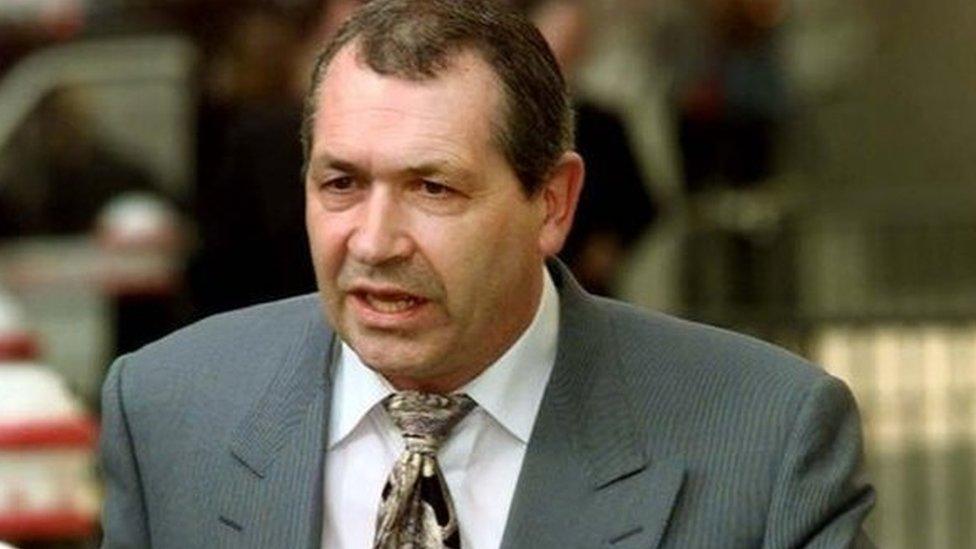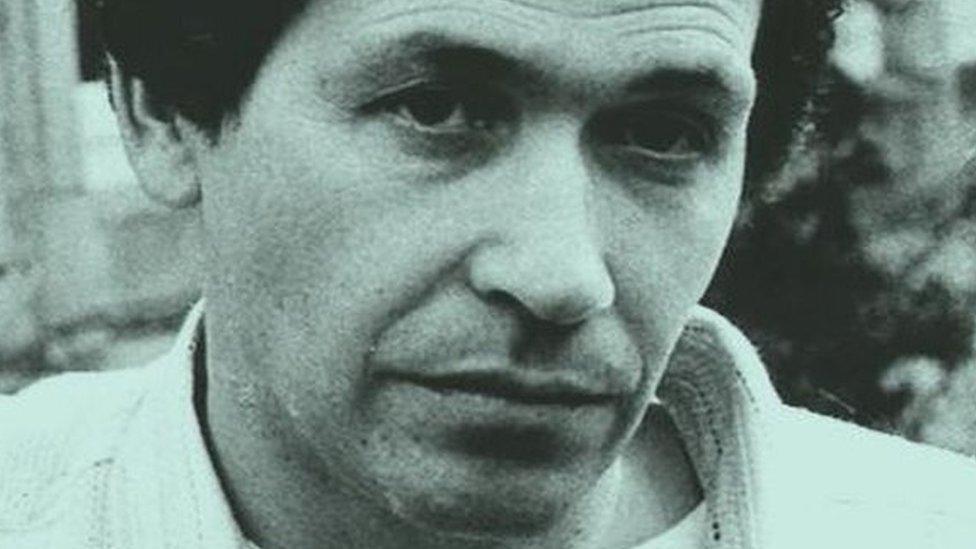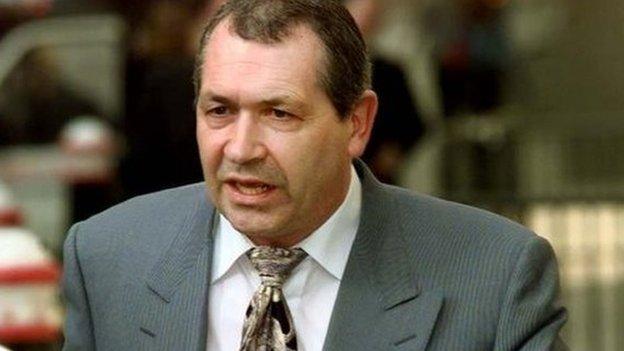John 'Goldfinger' Palmer murder probe: Man questioned
- Published

John "Goldfinger" Palmer, pictured in 2001, was a convicted conman
A 50-year-old man has been questioned on suspicion of the murder of notorious criminal John "Goldfinger" Palmer, detectives have said.
The 65-year-old was found dead in the garden of his gated home in South Weald in June 2015.
Although Essex Police originally thought he died of natural causes, it emerged he had been shot six times.
Police said they had questioned a man originally from Tyneside but currently living in southern Spain.
The force says the man was not arrested but volunteered to be interviewed at a police station in the UK. The force did not specify which police station he was interviewed at.
The interview took place on Saturday morning.
An inquest into Palmer's death concluded he was unlawfully killed. Police have said his shooting had "all the hallmarks of a professional hit".

The former scrap metal dealer was known for his involvement in the Brink's-Mat robbery
Palmer, once described as Britain's richest criminal and thought to have been worth £300m, got his nickname after he was arrested on suspicion of melting down gold from the Brink's-Mat robbery, although he was never convicted.
The robbery in 1983 took place at Heathrow Airport when £25m worth of gold was stolen. At the time it was the biggest robbery to have ever taken place in the UK, external.
The former scrap metal dealer, from Olton, near Birmingham, who was one of seven children, was said to have melted the metal down in the back garden of his mansion at Lansdown near Bath.
However, he denied knowing it was stolen and was acquitted in 1987, blowing kisses to the jury from the dock when the verdict was delivered.
Worth about £500m in today's prices, most of the gold has never been recovered and the case remains open.
In 1997 Palmer was arrested in Tenerife, and returned to the UK to face charges related to a large-scale timeshare fraud.
In May 2001 he was sentenced to eight years in prison and ordered to pay a record confiscation order of £33m.
- Published20 December 2016

- Published26 September 2016

- Published3 July 2015
